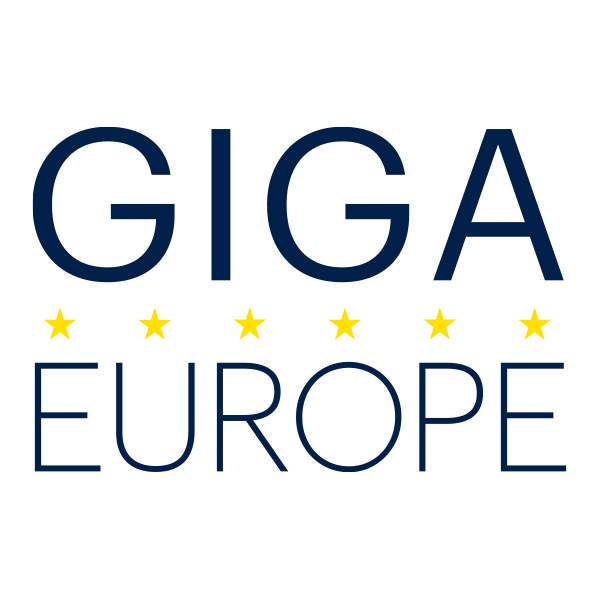By Irina Varlan, Managing Director of GIGAEurope
Brussels – 9 November 2020 – When the COVID-19 pandemic hit Europe in March, it was clearer than ever how connectivity is underpinning everyday life, particularly in times of lock-down. Because of the uptake in home working, online learning, remote healthcare services and digital public services, network occupancy surged. Research shows increases of 30-40% in VPN traffic, over 50% in video streaming, 75% in online gaming and a whopping 200+% increase in internet telephony and online videoconferencing.
The providers of broadband networks were prepared to manage these unprecedented spikes in internet traffic. Innovation competition between infrastructure providers led to investment in network upgrades year-on-year in terms of higher speeds, lower latency and more bandwidth – well ahead of the crisis.
Even though Europe’s societies showed resilience during the first phase of the pandemic, Europe is still far from achieving its Gigabit Society goals for 2025.
Even though Europe’s societies showed resilience during the first phase of the pandemic, Europe is still far from achieving its Gigabit Society goals for 2025. In 2019, fixed very high capacity networks (VHCNs) were only available to 44% of European households. Reaching the EU gigabit target of 1 Gbps for all European households by 2025 requires a concerted effort by all private operators of VHCNs who build, operate and invest in providing gigabit speeds and speak with one voice. And this voice is GIGAEurope. Policymakers and all stakeholders within the digital ecosystem are standing at a critical junction and need to partner and co-create Europe’s Digital Decade.
GIGAEurope members collectively provide connectivity services to around 40 million fixed broadband clients and 130 million mobile clients throughout Europe. GIGAEurope’s mission is to highlight the importance of EU policies, supporting sustainable investment and competition.
Keeping everybody connected as the transformation to a digital society drastically accelerates
Next to their core network related business, connectivity providers have taken special measures to keep everybody connected during the pandemic.
A few examples:
- Providers introduced essential internet offerings at social tariffs for low income and vulnerable groups.
- Data, voice and text caps were temporarily increased or even replaced with unlimited offerings for mobile subscribers.
- Complimentary speed upgrades were introduced, lifting entire subscriber bases to +100 Mbps.
- Anonymized and aggregated insights from telecoms data were shared in privacy compliant ways with authorities for virus containment purposes.
- Socio-economic drivers like schools and hospitals were supported with tailored connectivity solutions, sometimes at no charge.
- Information hubs were created for consumers and business customers to ensure secure and effective home working environments and optimal in-house connectivity configurations.
- In partnership with civil society, special helpdesk was established aimed at supporting the elderly with learning digital skills and getting online.
- Kids and family entertainment channels were expanded and often offered for free.
Gigabit infrastructure: cornerstone of Europe’s digital sovereignty
GIGAEurope members continue to do their part and invest in the evolution of gigabit infrastructure. It is a cornerstone of Europe’s technology leadership and digital competitiveness ambitions. As part of the European digital ecosystem, we jointly deliver on the promise of the data economy and democratize access to emerging technologies. Gigabit connections and seamless fixed/mobile connectivity solutions are ready to power European Cloud, IoT and AI-based applications at scale.
The connectivity sector also plays a significant role in driving Europe’s green transition. As part of the overall Green Deal climate neutrality objective for the EU, a sector-specific target of zero carbon emission by 2030 has been set for telecommunications networks and data centres. Providers continue implementing significant decarbonization measures around renewable energy, recyclable materials and sustainable supply chains. By connecting SMEs and socio-economic operators to gigabit networks, providers also act as a catalyst for the greening of the European economy more broadly. Gigabit connections facilitate the use of smart technologies for sustainable business operations, remote working, distance learning or digital health.
On the road towards an inclusive Gigabit Society, reaching the EU’s connectivity goals is a precondition. Commissioner Thierry Breton recently stated the ambition to have 100% of European homes connected to 1Gbps internet access by 2025. Also, deployment of 5G needs to be accelerated by completing spectrum auctions under conditions that preserve the investment case for fast and secure 5G infrastructure build and roll-out. Consolidation is to be encouraged to foster strong European telco competitors and create a real internal market for telecom services.
The gigabit objectives will be achieved by a mix of fixed and wireless technologies and by a combination of private and public investment. 20% of the EU Recovery Fund will be allocated to investments in digital. We support the Commission’s initiative of fostering national recovery plans that balance efficient public spending with creating conditions best suited for private investment by ways of creating a common toolbox around best practices. Immediate priorities for accelerating the gigabit ambitions relate to reduction of the cost of deploying very high capacity networks and to ensuring investment-friendly 5G spectrum licensing approaches.
We embrace the opportunity before us to shape Europe’s Digital Decade together with all stakeholders within the digital ecosystem.
We look forward to continuing our contribution to a policy framework that keeps investment incentives, maintains the pace of innovation, and accelerates gigabit availability to European homes, businesses and governments.
Read how GIGAEurope members managed unprecedented internet traffic spikes during #COVID-19 and what special measures they took to keep everybody connected: https://t.co/4rbD3Ya5gD
— Irina Varlan (@IrinaVarlan) November 11, 2020
▶︎ On Tuesday 17 Nov, we discuss #Connectivity for Recovery: https://t.co/l3Ay25XlEn#DigitalEU
RELATED ARTICLES

Do We Have All the Right Networks for the Future?

Be Courageous, Confident, & Curious: Insights for Women in ICT

